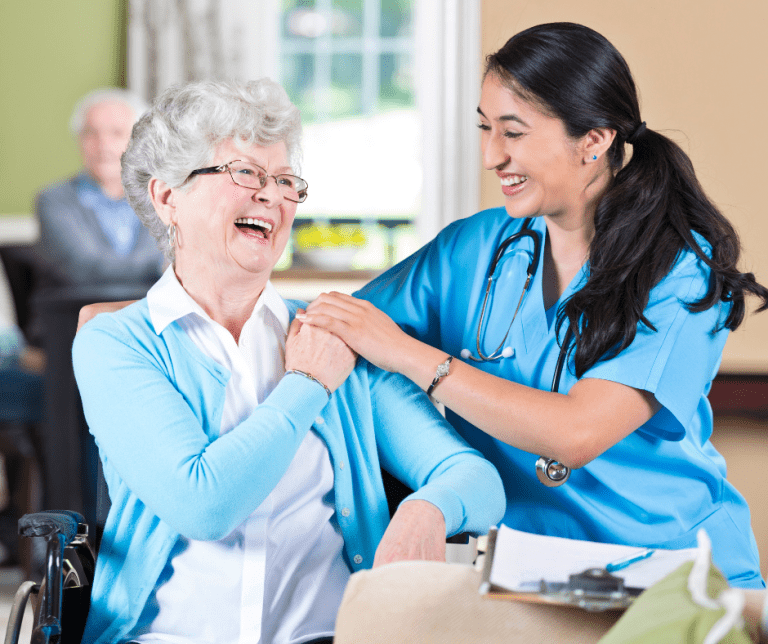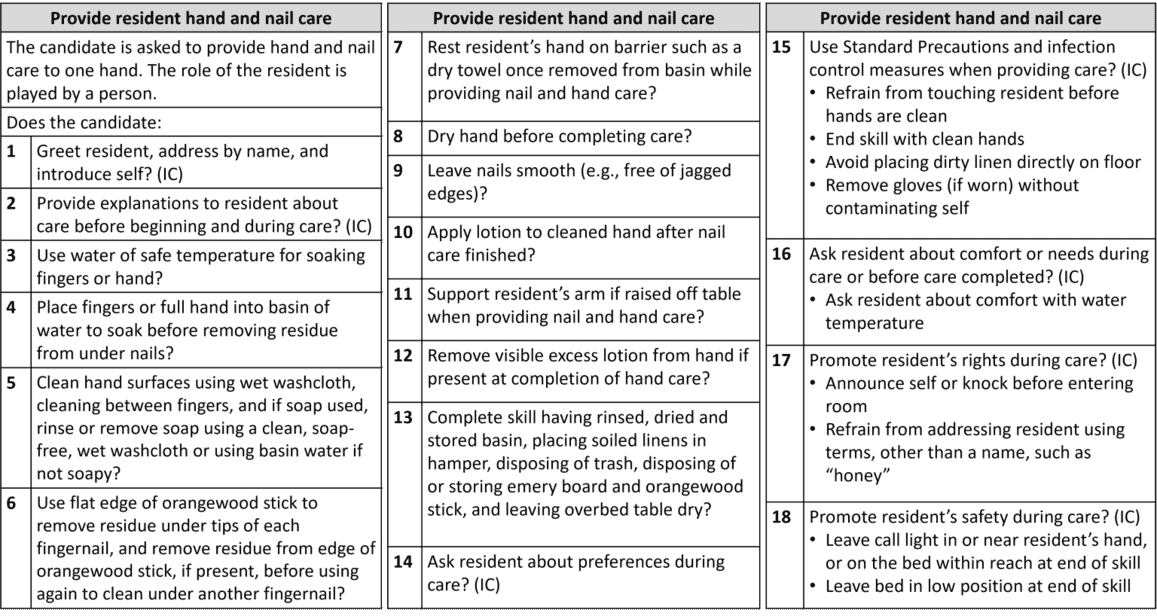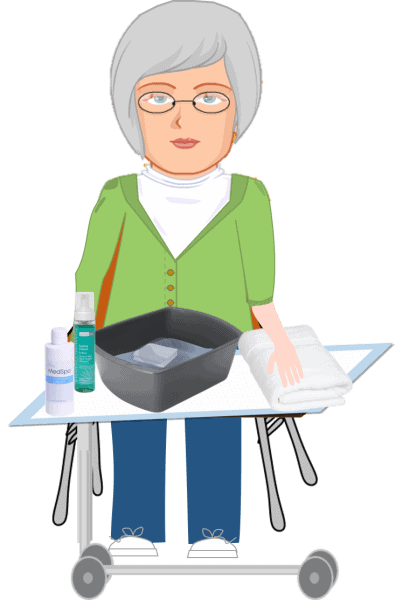CNA Skill Video: Provide Partial Bedbath and Backrub
CNA Skills Video Provide Partial Bedbath and Backrub https://youtu.be/TH1IVwZmAEE You may be assigned to give…

So, you have made it to the 4th secret…so, pay attention…this is the one that will probably fail you!
As we continue on with the series, you already know there are 5 big things you need to know when taking the clinical CNA exam:
This is one that trips up a LOT of students. And it’s only natural, because it’s all about the way you THINK.
See, up until now, you have been focusing on YOU. You are about to test. You need to learn the supplies. You have to practice the skills. You have to pass! It is only natural that your focus is on you when you go take the test. Except…that you will probably fail if you have that mindset.
Instead, you should understand that the test is all about the PATIENT. But what does that even MEAN? Well, let’s look at supplies for instance. If you are performing hand and nail care during the test, you know you will need towels and washcloths. But, how many do you need? And what if you get the wrong amount? What if you forget a step? How will that impact your score? By thinking in these terms, you have made it about YOU (YOU have to memorize supplies needed, YOUR score is what is important). But this is the wrong approach. To explain, let’s look at the checklist for this skill:

If you look closely, you will see that there is NO checkpoint that says, “Got the right number of washcloths” or “Gathered the appropriate supplies”. You are only graded on what you DO with those supplies…in other words, how it impacts the PATIENT. If you only get one washcloth, you won’t be able to rinse that hand, leaving soap on the skin (checkpoint #5). If you don’t get a towel, you won’t be able to dry the hand, leaving the hand wet and uncomfortable (checkpoint #8). If you forget lotion, you won’t be able to apply it, leaving the dry skin more susceptible to injury (checkpoint #10). If you don’t wipe off the excess lotion from the hand (checkpoint #12), the coffee cup might slip from her hand later, burning her with hot coffee. Even if you can’t SEE excess lotion, the hand may still be slippery. It is about the PATIENT’S safety, not whether you thought that step was needed.

But other steps are even MORE important to the patient. Asking the patient to check the water temperature might seem like a trivial step to you, but an elderly patient will perceive water temperature very differently than you do, making it very uncomfortable or even dangerous if the water is too warm. If you forget that step (checkpoint #16), you might think “I only forgot one little step, why did they fail me for that?” because you are thinking about YOU, not the patient.
Passing the test is not about how many steps you miss. Or even how many you did correctly. It is about the effect of each of those steps on the PATIENT. If you do a step correctly, the patient will have a positive outcome. If you miss a step, or do it wrong, the potential outcome on the patient is what will be judged.
So, why is this one likely to fail you? Because it is something that an instructor can’t really teach you. This shift has to come from within you. Instead of focusing on what YOU are doing when you are practicing, practice really LOOKING at the patient. Paying attention to THEM, not the steps. Making sure they understand what you are doing. Explaining the steps, making sure they are in the middle of the bed at all times, truly looking at whether they look comfortable. The overall effect of your actions on the PATIENT is what is being graded – the checklist is merely a list of minimum steps to ensure a positive patient outcome.
You are the only one who can make this happen. And, it takes practice. But it is an essential mindset shift that is necessary to become a valued healthcare team member. Demonstrating that you understand it is all about the patient is the most important checkpoint there is, because it is the only one that really counts in a clinical setting.
And the good news is, once you make this mindset shift, demonstrating the skills actually becomes EASIER. A perfect score is on your horizon…you are almost there!
Next week we are going to talk about corrections…just in case you make a mistake! Now, go practice paying attention to the patient!
See you next week!
Miss Patti
CNA Skills Video Provide Partial Bedbath and Backrub https://youtu.be/TH1IVwZmAEE You may be assigned to give…
FAQ Friday When Do I Put On Gloves? A lot of students think that you…
Newsflash Thursday The Case of the Pregnant Patient Imagine…you go to work tomorrow, it’s a…
Motivation Monday Character Do you remember what motivated you to become a CNA? That drive…
Motivation Monday Scholarships Want to further your education but short on cash? Look no further…we…
